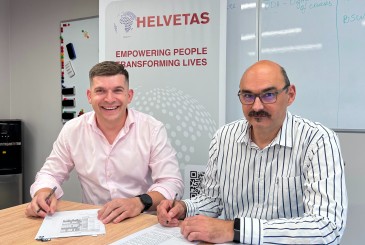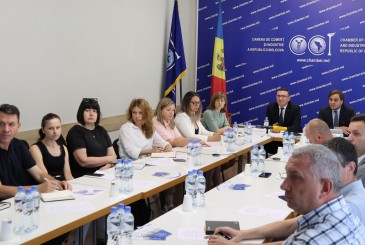
EUROALUN and the wonder lab that revolutionizes the regional seedling materials market
Meet the Moldovan company, that partnered with local academia and incorporated European best practices to produce high-quality seedling material.
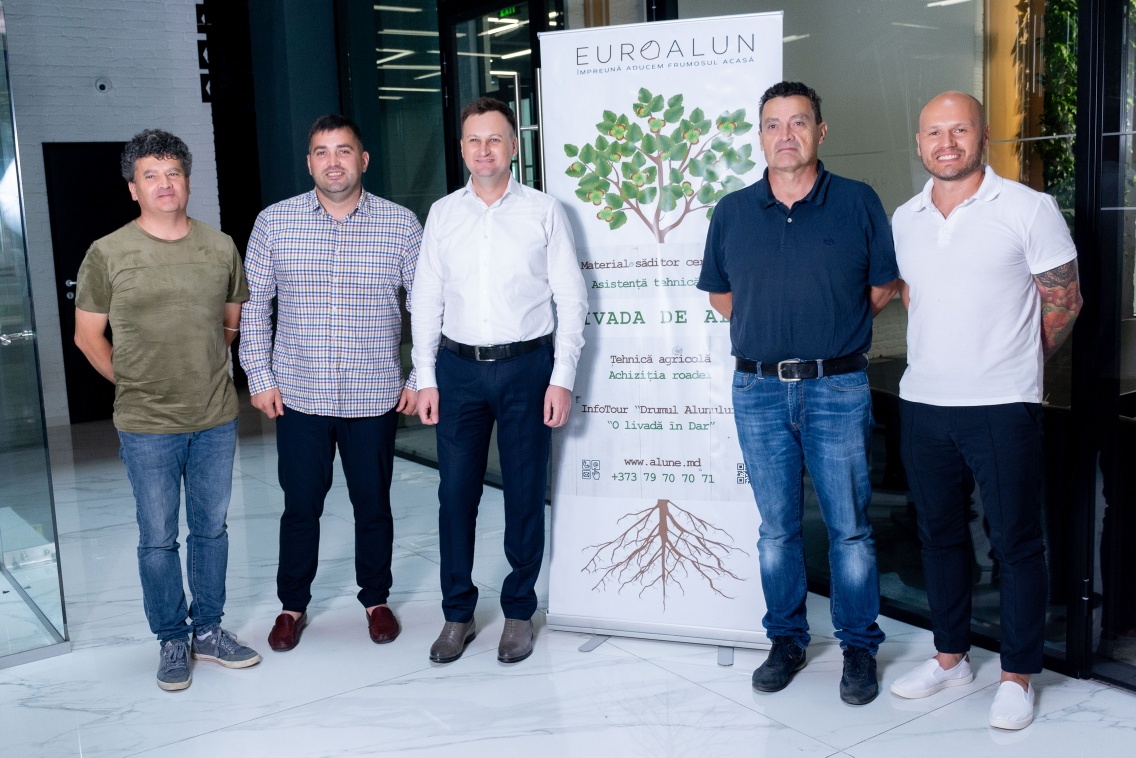
Once famous for its agricultural heavens and some of the best soils, Moldova’s agrarian climate is currently facing increasing economic and environmental challenges, thus requiring an upgrade in its resilience and sustainability towards internal and external disruptions.
Prolonged periods of cultivating the same plants are generating blind spots if considering high-value farming alternatives like hazelnuts, berries, aromatic plants, and others. Another problem faced by local farmers is the scarcity and doubtful quality of seedling material because of the lack of a mechanism for quarantine and quality control of commercialized seedling materials.
“Last year, during a meeting at the Ministry of Agriculture, nursery owners stated about the existence on the Moldovan market of a lot of planting material whose origin and quality is difficult to trace and verify (in terms of contamination, diseases, viruses) as there were no resources to perform a control in this regard. At the same time, on a local level, there is a scarcity of local companies capable to provide quality input supplies. Cases of the disease have been found in walnut plantations, and vineyards, that showed root cancer just 2–3 years after having been planted with imported material.” said Sergiu Melnic, Quality manager EUROALUN and VITROHUB, a specialist in conformity assessment.
The circumstances lead farmers to risk investing in plantations that will bring an inadequate harvest in terms of the variety and quality required by the market. This is particularly true for farmers aiming at organic certifications and other quality standards specific to exports.
Having identified the above-mentioned constraints, OPTIM intends to support this segment of the agricultural value chain through access to improved seedling materials, enhanced R&D capacities in the field, and establishment of viable partnerships between farmers, input suppliers specialized in seedling materials production (nurseries, a.o.) and relevant academia.
In 2020, OPTIM has established a partnership with EUROALUN, by providing financial support for the establishment of the VITROHUB Lab.
"EUROALUN is a great example of a company that is succeeding in embedding in their core business model, elements of innovation, collaboration, and sustainable development of the agricultural sector, by bridging the gap between farmers’ needs and market potential, while promoting cross-cutting solutions," mentioned Eugen Harabara, OPTIM Opportunity Fund Manager.
EUROALUN SRL is currently one of the most promising companies in the farming business. Founded in 2018, its activity focused on supporting farmers and agro-producers in the establishment of hazelnut orchards in Moldova. The company offered the so-called “360-degree approach”- all-inclusive technical and agronomical assistance for farmers from building a plantation to an advanced training system in agriculture, transfer of knowledge, strong partnerships with the academic sector, and peer exchange for best practices sharing. Currently, this is one of the top Moldovan companies specializing in the multiplication of seedling materials for hazelnut production and planting materials.
We have been EuroAlun customers since 2018 and acquired planting material and technical assistance for a period of 5 years. The “Hazelnut route” info tour, organized by the company in areas specialized in the production and processing of hazelnuts, helped us better understand the works that follow and what to expect in the future. — Veaceslav Eremia, owner of a hazelnut orchard.
The EuroAlun team is very receptive to our questions, often organizing visits to the orchard planted with them in order to ensure that it develops at the required pace. — Ruslan Basoc, owner of a hazelnut orchard.
EUROALUN team consists of local and Italian agronomists, with multiple activities inspired by Italy’s experience in hazelnut production, the country being a world leader in this area.
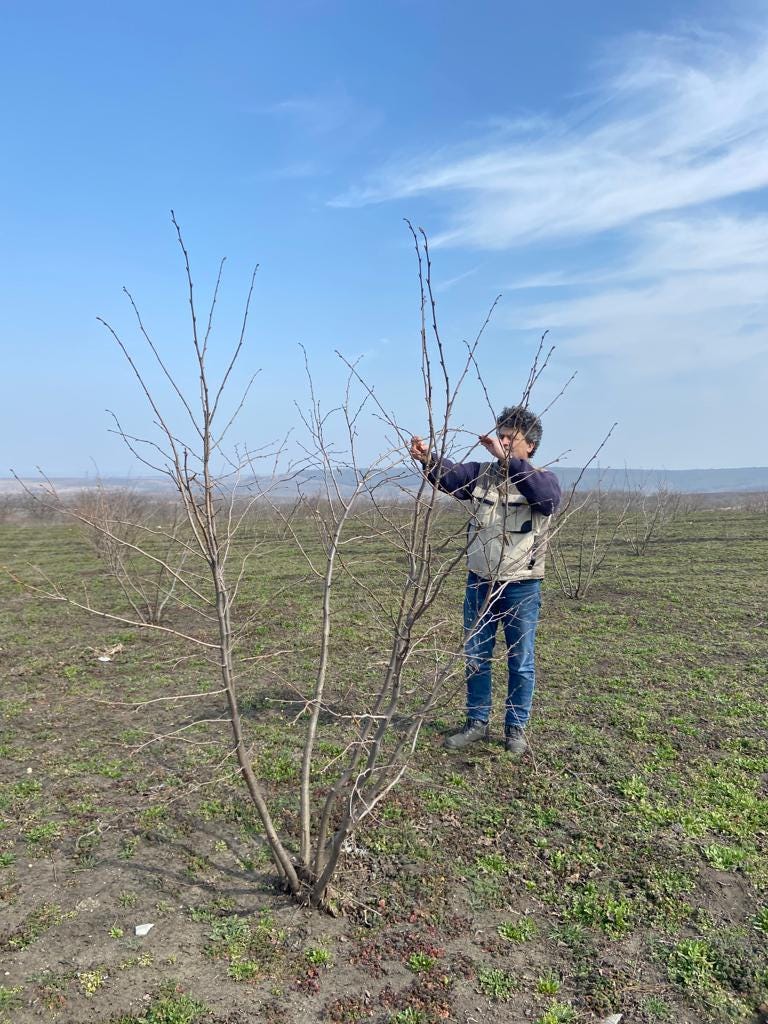
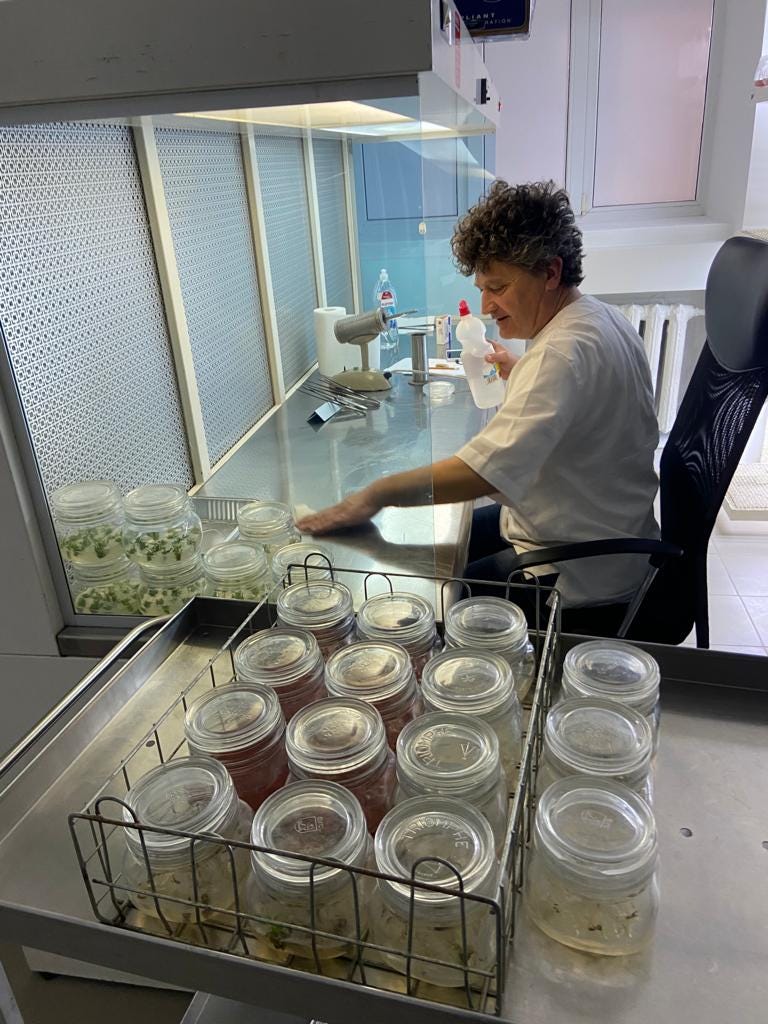
“In Moldova, there is great development potential for modern, competitive, and quality nurseries. The land is very fertile and, in some areas, there is abundant water for irrigation. Plant production could become a great economic opportunity for this country in the nearest future, as the world increasingly needs greening to combat the great problem of climate change. Within ten years, Moldova could become a major producer of plants and successfully compete with European nurseries. The markets of high interest are Europe and Russia. We want to address young people in particular by telling them that producing plants leads to reducing CO2 in the atmosphere and thus improving the environment in which we live. This is an important achievement that they can pass on to future generations.” — Carlo de Lauretis, Technical specialist in micropropagation/EUROALUN and VITROHUB.
The launch of the VITROHUB laboratory
In 2020, due to the high demand for virus-free verified seedling material and restrictions imposed by COVID on the import of seedling material, the company established a local InVitro facility and production capacities within a partnership with the State University of Moldova. A similar laboratory has been previously established by the EUROALUN partners in Italy and the same technologies and know-how were transferred to the Moldovan VITROHUB. The micropropagation laboratory aims to provide services to local nurseries and farmers by producing virus-free seedlings in Moldova and adapting the product to the local environment.
The lab started its work with the plant it knew best — the hazelnut and its in vitro propagation.
In vitro plant propagation or micropropagation is a constantly growing trend in plant farming, leading to a huge number of healthy plants which are available at lower prices than the traditionally multiplied ones. Additionally, this technology has also the potential to be applied in many other agricultural directions such as horticulture, berries, medicinal plants, a.o.
One of the main limitations of hazelnut in vitro propagation is the high risk of endogenous contamination, thus the VITROHUB laboratory is equipped with sterilization technologies, all potential contamination being visible at early stages.
Another direction of VITROHUB is the cultivation of rootstocks. Rootstock is the base and root portion of a grafted plant, used to create a new plant with superior qualities. Rootstock plants determine the longevity of the plant, resistance to pests and diseases, resistance to low temperatures, and fruit harvest. Besides the 5 varieties of hazelnut rootstocks currently available in the lab, the company cultivates GF677 peach rootstocks, and will soon receive Mirabolano 29c apricot rootstocks while leading sublicense negotiations with the owners of Gisela and MaxMa cherry varieties.
The company’s plans foresee the production of approx. 250–300 thousand seedlings per year, thus ensuring a decent supply capacity for the current market demand. The company is currently working on its first order, that of 60.000 peach rootstocks and a few experimental batches of sea buckthorn and aromatic plants.
"Modern plantations of intensive and super-intensive fruit trees have a lifespan of about 10 years, and some farmers renew them even more often, thus even existing successful orchards can become our prospective customers. A study conducted by Moldova Fruct Association predicts a tripling of the production of 5 main fruit varieties by 2027. If obtaining successful results on the domestic market, in conditions of mutual embargoes between our neighbors from the east and west, we have high chances to become suppliers for the CIS and other markets." added Sergiu Melnic, Quality manager EUROALUN and VITROHUB, specialist in conformity assessment.
Exploring new opportunities
In 2020, representatives of the Agrarian State University of Moldova who work closely with producers of planting material have shown interest in the in vitro cultivation of several species of sea buckthorn, as there is currently no virus-free material on the market. VITROHUB plans to test in the nearest future the in vitro propagation, with considerable annual quantities of sea buckthorn to be contracted, in case of success.
The field of aromatic and medicinal plants that can be used for food or healing purposes is one of the major interests of the technical expert, Mr. Carlo de Lauretis. In Italy, he is the founder or expert in several organizations dealing with projects to revitalize parks, nature reserves, gardening therapy, and activities for children to cultivate skills for sustainable agriculture and a healthy living environment.
“Professors from Moldova State University develop projects related to the aromatic category of plants. In the context of the collaboration agreement on the basis of which VITROHUB operates within the university, we have clauses that provide for mutual support in research activities and skills training for students in this area.” — Carlo de Lauretis, Technical specialist in micropropagation/EUROALUN and VITROHUB.
Cooperation with students
Apart from its production function, the Lab offers training for staff and students from the Faculty of Biology and Pedology of Moldovan State University, where the laboratory is located. Students and interns have access to the know-how and equipment and are walked through all stages of Lab processes.
“My lab experience allowed me to be part of the in vitro propagation of plants, I continuously learn new things in this area. The atmosphere in the lab is welcoming and friendly.” — Nicoleta, student.
“This is a huge opportunity to apply the theory in practice, for a good cause. The language barrier is not an obstacle, if you observe well and ask questions. In an agrarian country as ours, there is need for technologies, we must learn to work smarter, rather than for long periods of time in the fields.” — Olga, Master degree student.
Another innovative element of the project is the introduction of paper-pot technologies in the process of seedling production as an alternative to plastic pots, with on-site production. This would allow avoiding the production of up to 50 tons of plastic annually, needed to create plant pots. Plantation in biodegradable pots reduces plant mortality due to a higher attachment rate and reduced shock transplantation.
 Examples of paper-pots / Photo credits: Ellepot.com
Examples of paper-pots / Photo credits: Ellepot.com
Every year, the company offers a hazelnut orchard to an educational institution, with students participating in the planting process. In 3–4 years, the hazelnut harvest can be included in the school’s food program.
Plans foresee the creation of a didactic tourist center for promoting the company’s principles and policies (sustainability, plastic-free living, innovation in agriculture, etc.).

The team during a hazelnut orchard plantation at the ”Emil Nicula” lyceum, Mereni/ Hazelnut orchard planted in 2018 at the ”Dante Alighieri” lyceum, Chisinau/ At the EUROALUN international conference on hazelnut production.


